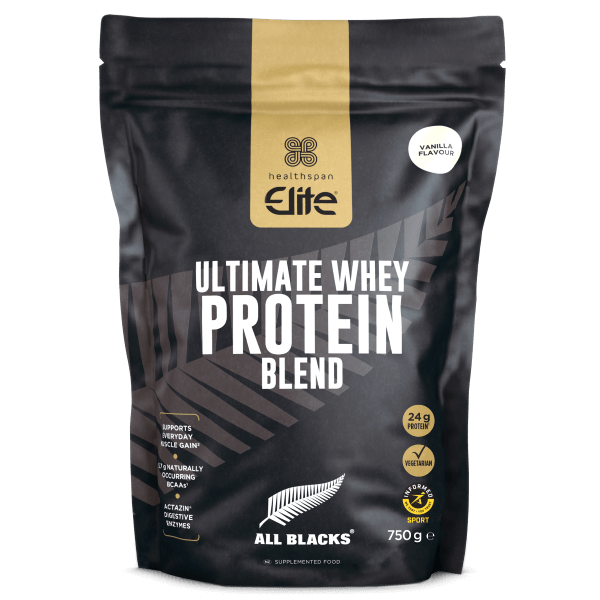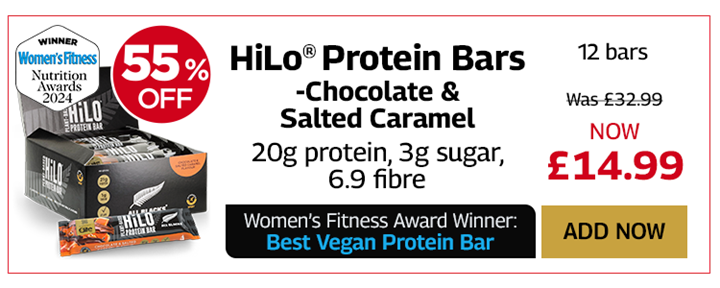Hannah Sheridan, Lead Nutritionist for Tottenham Hotspur football club, explains how food strategies differ between training and match day, how diet affects recovery, and the role of supplements.
Do your nutrition strategies change depending on a player's position?
Yes, outfield players cover a greater total distance and do more high-speed running than a goalkeeper, so their requirements on a match day are slightly different. For this reason, outfield players will have a higher carbohydrate (pasta, rice, potatoes, cereals etc) diet in the 24-hour period prior to a match than a goalkeeper.
Following the match, we really push all players to replenish energy stores and to attenuate muscle damage as best possible – this involves consumption of a high-carbohydrate diet and plenty of foods that are rich in anti-oxidants or have anti-inflammatory properties. For example, berries and turmeric. Again, post-match carbohydrate intake is individualised to the player's positional demands.
Do you have any players who are following plant-based diets, and how does this affect their nutrition plans?
Yes, we do, and we have seen an increase in this over the last 2-3 years. When following a vegan diet the main concerns for a player are the risk of insufficient protein intake along with various vitamin and mineral deficiencies.
We therefore educate players around the different types of protein sources, such as tofu, tempeh, beans and pulses, along with appropriate portion sizes to ensure they consume a sufficient intake. This is vital to allow players to adapt and recover between training sessions and after matches.
Anyone following a vegan diet will also be supplemented with essential vitamins and minerals, such as vitamin B12 and iron.
How did your nutrition advice to the players change during lockdown?
Much of our advice remained the same, but obviously our delivery of nutrition support became remote. We focused on nutrition strategies to optimise training adaptation and immune support, so that we could maximise player availability in our virtual training sessions.
As the fixture schedule was on hold during lockdown, it gave regular starting XI players a break from aggressive fuelling and refuelling strategies. This meant we could focus on optimising body composition throughout the squad, which can be difficult during the season when a player's priority is to maximise energy stores and recover between matches just 2-3 days apart.
Match day meals
What's a typical match day meal plan for the players?
It really depends on the kick-off time of the match. If we have an 8pm kick off, we have the opportunity for three meals (breakfast, lunch and pre-match meal), whereas an early kick off only allows time for one meal (pre-match meal). An example match day meal plan would be:
Breakfast: bagel with two poached eggs, glass of orange juice, two scotch pancakes with maple syrup and berries.
Lunch: Chicken wrap with a tomato and herb sauce. Bowl of mango and pineapple with a low-fat fruit yogurt.
Pre-match meal: Spaghetti, small serving of pesto with a grilled chicken breast or white fish fillet and a fruit smoothie.

Low in fibre and fat, high in carbohydrate: Spaghetti, grilled chicken breast and tomato sauce.
What's the perfect pre-match meal?
Something that is low in fibre and fat, but high in carbohydrate; pasta with grilled chicken breast and a fresh tomato sauce, or a toasted bagel with sliced banana and honey and a fruit smoothie.
Do supplements have a role to play on a match day?
On a match day supplements are important for performance and recovery. Prior to and during a match, players can't stomach large snacks or wholefoods, so carbohydrate powders, gels and gummies help to maintain and restore energy levels.
Many players take caffeine in the form of gum or tablets to optimise performance. By using caffeine supplements we have greater control over the dosing strategy and can tailor this to the individual.
Recovery supplements are vital due to the limited recovery time that players have between matches, the loss of appetite that can be experienced following a match and for convenience when travelling.
We would use protein/carbohydrate blends, which are convenient to travel with and often easier for players to consume immediately after a match compared with a large meal. We would also use Turmeric and Performance Cherry sachets over the 24-hour period following a match.

Elite All Blacks Ultimate Whey Protein Blend
Protein powder co-created with the All Blacks
- 24g protein per serving to support muscle growth
- Added protease to break down protein for better absorption
- Available in vanilla, strawberry and chocolate. Low in sugar









